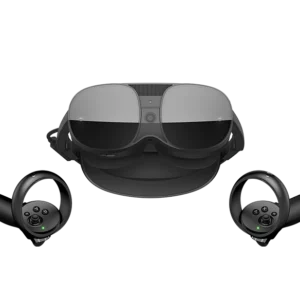Why Space Startups Pivoting to Defence Is Fueling Innovation Like Never Before
The once clear-cut divide between space exploration and defence technology is becoming increasingly blurred. Space startups that initially focused on exploration and commercial ventures are now pivoting towards defence applications—and that shift is proving to be a blessing for innovation in both industries. This opinion piece dives into why this trend is unfolding, how it benefits technological advancement, and what it means for the future of both space and defence sectors.
Why Are Space Startups Shifting Focus to Defence Tech?
In the past decade, space startups thrived by chasing goals like satellite deployment, asteroid mining conceptualization, and affordable space travel. However, in recent years, an increasing number of these companies have shifted towards defence-related contracts and projects. Why the change?
Several real-world factors are driving this pivot:
– Stable Funding Sources: Defence contracts often come with consistent, long-term funding, which can be a lifeline for startups struggling with the unpredictability of commercial space markets.
– Increased Global Tensions: Geopolitical rivalries are pushing governments to bolster their space defence capabilities, creating demand for cutting-edge technologies.
– Cross-pollination of Innovation: Technologies developed for space exploration—such as advanced materials, autonomous systems, and secure communications—have direct applications in defence.
As reported by The Next Web, this convergence is more than just a trend—it’s reshaping how innovation cycles iterate, merging agility with strategic national interests.
How Are Space Technologies Accelerating Defence Innovation?
The technology that powers space missions—high-precision sensors, AI-enabled satellite constellations, and resilient hardware designed to withstand harsh environments—provides a fertile ground for defence systems enhancement. Here’s how space tech is accelerating defence innovation:
Enhanced Surveillance and Reconnaissance
Starup companies innovating in low-Earth orbit satellite networks enable unprecedented real-time data collection. Defence agencies benefit from this by gaining better intelligence, surveillance, and reconnaissance (ISR) capabilities, critical in a rapidly evolving threat landscape.
Autonomous and AI-Driven Systems
Many space startups incorporate AI to aid spacecraft navigation or for predictive maintenance. These AI advancements are increasingly being adapted to develop autonomous drones, threat detection systems, and cyber defence measures applicable to national security.
Robust and Lightweight Materials
Space demands materials that are both lightweight and extremely durable. Defence manufacturers now benefit from these breakthroughs to create better armor, vehicles, and equipment that improve soldier protection and operational efficiency.
What Are the Broader Impacts of this Defence Pivot on the Space Industry?
Though some worry this pivot might militarize space exploration or limit open scientific collaboration, the reality is more nuanced:
– Financial sustainability for startups: Defence contracts offer steady revenue streams, allowing startups to invest more in R&D and breakthrough innovations.
– Accelerated technological advancements: The fusion of defence and space tech expedites problem-solving under tight timelines.
– Talent attraction and retention: Engineers and innovators are drawn to projects with clear impact and funding stability.
This isn’t a zero-sum game but rather a synergistic relationship, driving the space economy forward at an unprecedented pace.
What Challenges Could Space Startups Face in Defence Collaboration?
Despite the benefits, startups pivoting towards defence must navigate certain challenges:
– Compliance with strict regulations: Defence projects require adherence to security clearances, export controls, and compliance measures, which can be complex and costly.
– Balancing dual-use technologies: Navigating intellectual property rights and maintaining transparency between commercial and defence clients can be difficult.
– Ethical considerations: Startups must align on ethical use of their technologies, especially when it comes to weaponization.
Successfully overcoming these hurdles can position startups as key systemic innovators.
Summary: Defence-Driven Innovation Is Pushing Space Startups to New Heights
The pivot of space startups towards defence innovation is more than a fleeting trend—it’s a strategic evolution reshaping both industries. The fusion of space technology with national security needs provides startups with critical funding, accelerates breakthrough innovations, and attracts top talent. While there are regulatory and ethical challenges to tackle, the overall impact on innovation and technology development is overwhelmingly positive.
As global dynamics evolve, this trend will likely deepen, ushering in an exciting era of advanced capabilities in space and defence sectors alike.
Ready to explore more about cutting-edge innovations shaping our future? Dive deeper into the AI technologies that are powering this new frontier!
—
FAQ
Why are space startups moving into the defence sector?
Space startups are pursuing defence contracts because they provide stable funding, access to national security projects, and opportunities to apply cutting-edge space technologies like AI and autonomous systems to real-world defence challenges.
How does defence funding benefit innovation in space startups?
Defence funding offers predictable revenue streams that enable startups to invest more heavily in R&D. This accelerates the development of advanced technologies that can be applied to both defence and commercial space ventures.
What are the risks of space startups working with defence agencies?
Startups face regulatory compliance burdens, potential ethical concerns over weaponization of technologies, and the complexity of managing dual-use IP rights. Navigating these demands carefully is crucial for sustainable growth.
📢 Want more insights like this? Explore more trending topics.




